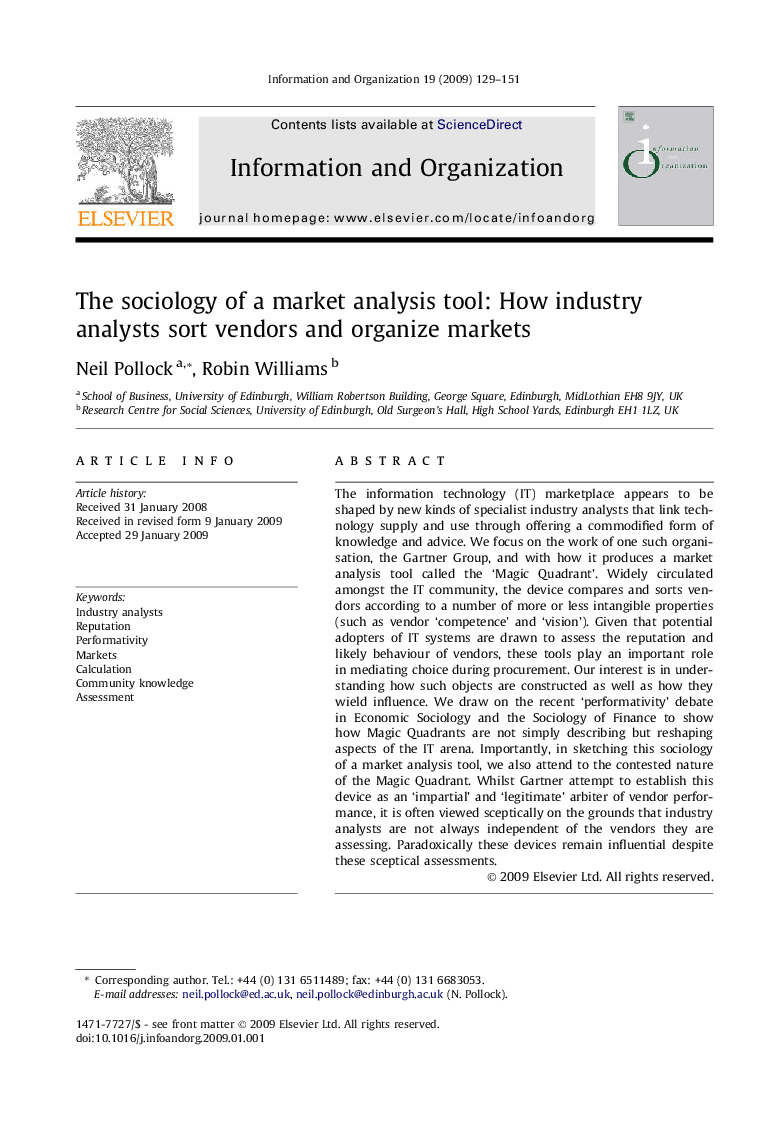ترجمه فارسی عنوان مقاله
جامعه شناسی یک ابزار تجزیه و تحلیل بازار: چگونه تحلیلگران صنعت فروشندگان را مرتب و بازار را سازماندهی می کنند
عنوان انگلیسی
The sociology of a market analysis tool: How industry analysts sort vendors and organize markets
| کد مقاله | سال انتشار | تعداد صفحات مقاله انگلیسی |
|---|---|---|
| 47694 | 2009 | 23 صفحه PDF |
منبع

Publisher : Elsevier - Science Direct (الزویر - ساینس دایرکت)
Journal : Information and Organization, Volume 19, Issue 2, April 2009, Pages 129–151
ترجمه کلمات کلیدی
تحلیلگران صنعت؛ شهرت؛ کاربردپذیری؛ بازار؛ محاسبه؛ دانش جامعه؛ ارزیابی
کلمات کلیدی انگلیسی
Industry analysts; Reputation; Performativity; Markets; Calculation; Community knowledge; Assessment

